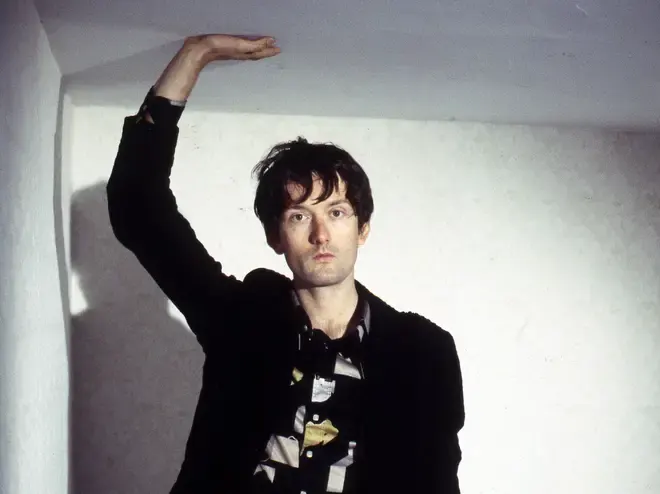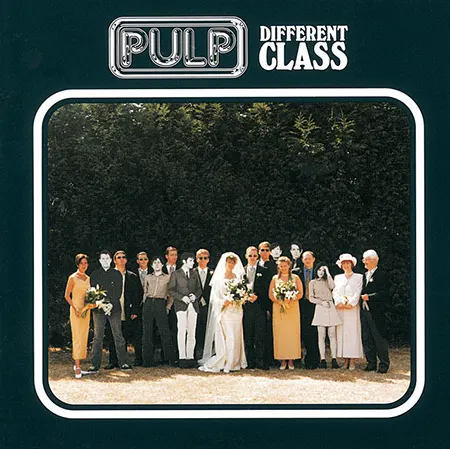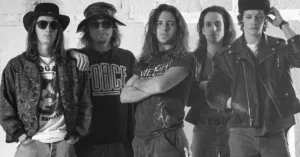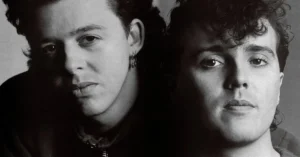Pulp: The Defining Voice of Britpop and Chroniclers of British Working-Class Life
Pulp. Formation and Early Years (1978–1993)
Pulp was formed in Sheffield, England, in 1978 by a teenage Jarvis Cocker, who became the band’s charismatic frontman and principal songwriter. The early years were marked by experimentation and struggle. Initially, Pulp’s sound leaned towards post-punk and new wave, with sparse releases that garnered little commercial attention. The band underwent multiple lineup changes through the 1980s, and their music evolved from dark, introspective themes to more accessible and melodic forms.
During this period, Pulp released three studio albums: It (1983), Freaks (1987), and Separations (1992). These records exhibited a raw and experimental sound with elements of glam, synth-pop, and alternative rock. However, despite some cult following, mainstream success remained elusive.

Pulp. Breakthrough and Britpop Fame (1994–1997)
Pulp’s rise to stardom coincided with the mid-1990s Britpop explosion—a movement that celebrated British identity, music, and culture in opposition to the American grunge wave.
His ’n’ Hers (1994)
This album was Pulp’s commercial breakthrough. Featuring a more polished and melodic sound, it included standout tracks like “Do You Remember the First Time?” and “Babies.” The record’s blend of catchy hooks and sharp social observations brought the band critical acclaim and wider public recognition.
Different Class (1995)
The release of Different Class catapulted Pulp to the forefront of Britpop alongside Oasis and . This album is often considered their masterpiece. It is filled with vivid storytelling, social critique, and memorable melodies.
Songs such as “Common People” tackled British class divisions with biting irony and empathy, telling the story of a privileged woman who wants to experience “how the common people live.” The track became an anthem for a generation and remains one of the defining songs of the 1990s. Other hits like “Disco 2000,” “Sorted for E’s & Wizz,” and “Mis-Shapes” explored themes of youth, escapism, and alienation with humor and poignancy.
Jarvis Cocker’s witty, observational lyrics, combined with the band’s mix of glam rock, pop, and indie sensibilities, created a sound both accessible and intellectually engaging.
Public Persona and Media Impact
Jarvis Cocker became a beloved cultural figure, known for his distinctive voice, stage presence, and clever interviews. His outspoken critique of fame and celebrity culture further endeared him to fans. One of the most infamous moments came during the 1996 BRIT Awards when he interrupted Michael Jackson’s performance in protest against its perceived self-aggrandizement.
Pulp. Later Years and Artistic Evolution (1998–2002)
This Is Hardcore (1998)
After the peak of Britpop, Pulp’s music took a darker and more introspective turn. This Is Hardcore reflected themes of disillusionment, aging, and the corrosive effects of fame and desire. The album’s cinematic production, layered arrangements, and complex emotional tone marked a significant departure from the exuberance of Different Class. Tracks like the title song “This Is Hardcore” and “Help the Aged” exhibit a haunting, melancholic quality.
While not as commercially successful, the album was praised for its artistic depth and maturity, showcasing Jarvis Cocker’s growth as a songwriter.
We Love Life (2001)
Pulp’s final studio album before an extended hiatus, We Love Life was a more organic and reflective record, inspired by nature and the beauty of life despite its hardships. It featured lush arrangements with strings and woodwinds, displaying a softer, more hopeful side of the band.
Though it received positive reviews, the album did not achieve the commercial success of their mid-90s work, and the band gradually slowed their activity.
Hiatus and Reunions (2002–Present)
After We Love Life, Pulp went on a long hiatus. Jarvis Cocker pursued solo projects and collaborations, while other members engaged in various musical endeavors. The band reunited for tours and special events in 2011 and 2012, receiving enthusiastic responses from fans and critics alike.
Their legacy remains firmly cemented in British music history as a band that captured the complexities of modern life with humor, empathy, and sharp observation.
Pulp. Musical Style and Themes
Pulp’s music blends indie rock, glam, pop, and sometimes disco influences. Jarvis Cocker’s distinctive baritone vocals deliver lyrics full of wit, social commentary, and vivid storytelling. Recurring themes include:
- British class struggles and social divisions
- Youth culture, love, and heartbreak
- Fame, identity, and alienation
- Nostalgia and everyday life observations
The band’s style evolved over time but always retained an intelligent, emotionally resonant core.
Pulp. Influence and Legacy
Pulp is considered one of the defining bands of the Britpop era and one of the most important British bands of the 1990s. Their songs have influenced countless indie and alternative artists. Different Class remains a quintessential Britpop album, widely regarded as one of the greatest British albums of all time.
Jarvis Cocker’s role as a cultural icon extends beyond music; his social activism, distinctive public persona, and influence on British pop culture are significant.
Interesting Facts
- Jarvis Cocker was inspired to start a band after seeing the perform in Sheffield.
- The band’s name was inspired by the idea of “pulp fiction” stories, reflecting their interest in storytelling.
- “Common People” was inspired by an encounter Jarvis Cocker had with a Greek art student who wanted to “live like common people.”
- Pulp’s music videos often feature theatrical and cinematic elements that complement their storytelling.
- Jarvis Cocker famously made a cameo in the film Harry Potter and the Goblet of Fire.






